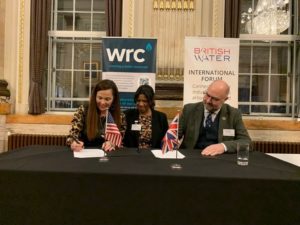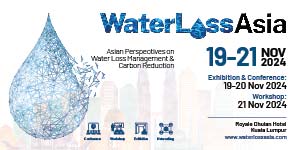Innovation Would Help Find More Chemicals in Water

Innovation Would Help Find More Chemicals in Water (Image source: British Water)
John Collins, deputy director of evidence assessment and evaluation at the Environment Agency, said that despite having one of the most robust pollutants testing systems globally, rapid investment in innovation is needed to detect all sources of contamination from both established and newly emerging pollutants.
Speaking after the event, Collins said, one of the key questions the Environment Agency and other regulators face is how to prioritise chemicals for targeted monitoring and management.
The Environment Agency is exploring innovative sampling and analytical techniques to monitor a greater number of chemicals for ecological risk assessment. Simultaneously, we are using our existing chemical monitoring data to ensure we continue to monitor the right chemicals, in the right place, at the right time.
In a joint keynote with Matt Womersley, manager of the chemicals strategic & regulatory planning team at the Environment Agency, Collins outlined the current situation in the UK, including investment in research, advancing treatment technologies and, the use of nature-based solutions. The speakers also gave an overview of the existing and future legislative drivers that will be critical in preventing the release of micropollutants into the environment.
Innovative solutions
Speakers explored the scientific evidence base and how regulation of micropollutants is evolving in the UK and across the EU. Some of the most innovative technologies and solutions in micropollutant removal were presented at the conference, including:
- Recycling of spent activated carbon used in the removal of PFAS - CPL Activated Carbons
- Innovative UV technology - Van Remmen UV Technology
- Sustainable micropollutant removal with the BO3-technology - Royal HaskoningDHV
- Ozone and granular activated carbon – maximising synergistic effects - Veolia UK Water Technologies & Solutions
- The use of superfine adsorbents to reduce cost - Mecana Umwelttechnik
Green technologies
The potential of nature-based solutions was discussed by Luisa Orsini, co-founder & chief executive, Daphne Water Solutions, and Cynthia Carliell-Marquet, innovation architect at Severn Trent, reviewed how waterfleas, known as Daphnia, can be harnessed to remove pharmaceuticals, pesticides and industrial chemicals from wastewater, providing a low-cost and low-carbon treatment method with minimal toxic byproducts.
Prevention at source
Addressing micropollutants in water requires a shift towards preventing their release in the first place, involving collaboration across industries including paramedical and agriculture, stronger regulations, and international cooperation.
A panel discussion, hosted by Dr Pablo Campo, explored how the pharmaceutical industry can play a significant role in tackling micropollutant contamination by investing in research, adopting advanced treatment technologies, and collaborating with other stakeholders.
Stewart Owen, principal environmental scientist at AstraZeneca, spoke from athe pharmaceutical industry’s perspective, highlighting current collaborations with universities and research institutions aimed at developing environmentally friendly drugs and production processes.
Reflecting on the conference, British Water’s chief executive Lila Thompson said, Tackling micropollutants demands a multifaceted approach including research and innovation, collaboration, technology adoption, and nature-based solutions, with collective responsibility across government, industry, and society. As events like this show, the water sector and wider supply chain stands ready to work in collaboration with key stakeholders in the UK and globally to tackle this important issue.
Source: British Water







